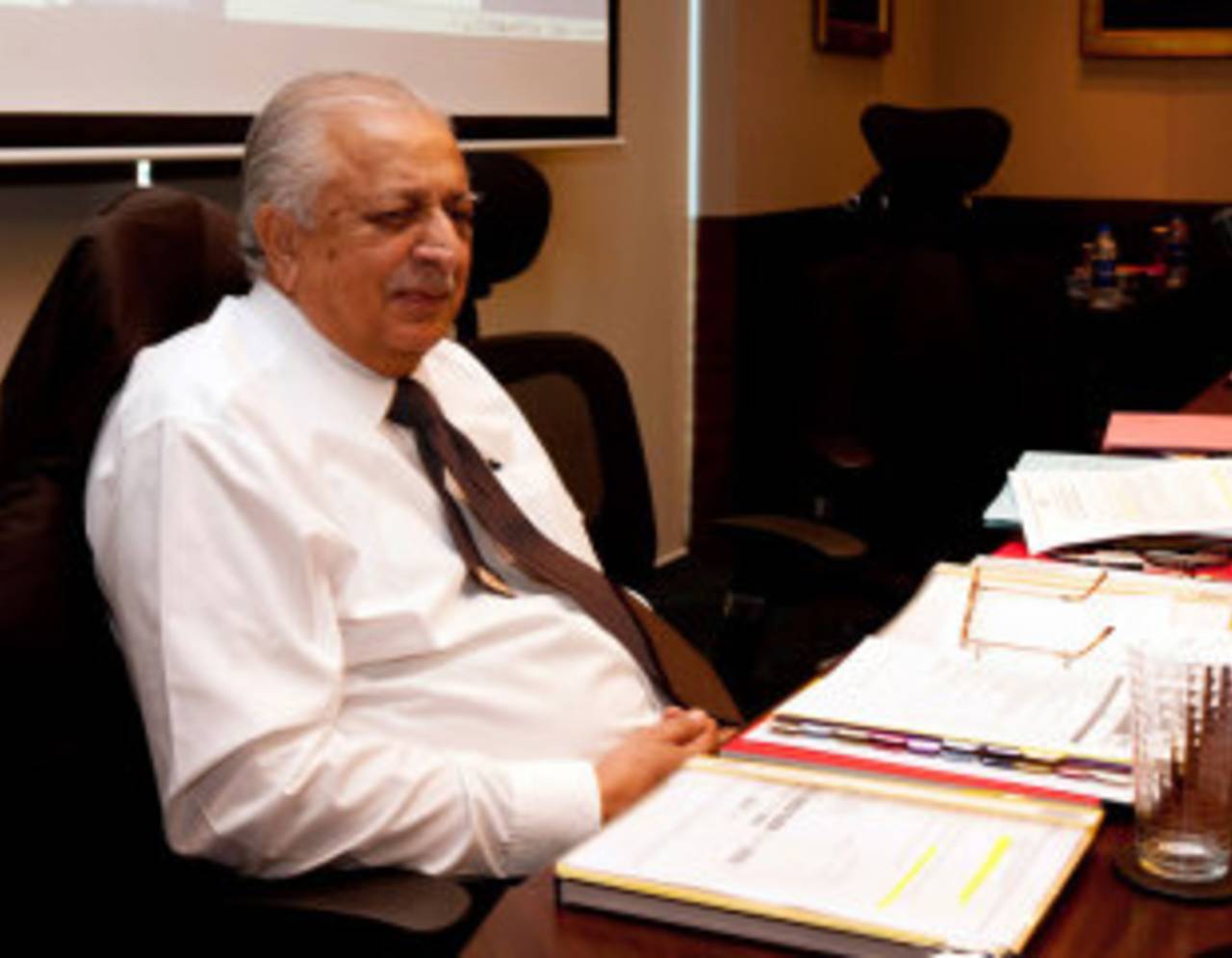The Sindh High Court has issued a notice to the PCB, after accepting former Pakistan wicketkeeper
Rashid Latif's petition that challenged PCB's constitution and sought a 'fair and transparent' functioning of the board.
The PCB, though, is yet to receive the Sindh High Court notice but ready to face the writ petition against them.
"As and when the notice will be received, PCB will be appearing before the honorable Sindh High Court and defend the petition," PCB legal advisor, Tafulzul Rizvi, told ESPNcricinfo.
"PCB have openly defend such petitions before the honorable higher courts of Pakistan and will be doing the same."
The petition challenges two posts in the PCB, those of the director general and the security advisor, and seeks a new constitution in line with the ICC directives. "The powers assigned to the patron of PCB, who is the president of Pakistan, are in complete disregard and violation of the Constitution, as they smack of a non-transparent and discriminatory approach of the board," the petition said.
"The way the PCB is being governed is a point of concern," Latif's lawyer, Abdul Sattar Pirzada, told ESPNcricinfo. "Rashid's petition is not an adversarial one but merely for the public interest as we are not against any person but the system and the functioning within the PCB.
"This is a democratic country and the PCB should have to function [according to a] democratic process to operate in a fair and transparent manner wherein the composition of the officials of the PCB, including the chairman, is based on an electoral process. The goal ultimately is the betterment of Pakistan cricket.
"There are two system working within the PCB in parallel to each other and the direct appointee (the director general) overwhelms most of the cricketing decision. Our petition seeks an electoral system with elected people should take decisions similarly in the other successful cricketing countries."
Pirzada was aware that the ICC had given its member boards
two years to become democratised, and free from government and political interference, to improve governance within the game. In Pakistan, the president appoints the chairman of the board, and holds the power to approve the appointment of the governing board members.
"The blatant and admitted failure of the government of Pakistan to amend or pass a new constitution in accordance with the directives of the ICC is a clear and flagrant violation of the very purposes for which the PCB was established under Section 3 of the Ordinance 1962, i.e. for developing uniform standards of competition in sports in Pakistan comparable to standards prevailing internationally," the petition said.
The petition filed under Article 199 of the constitution of Pakistan also challenged the capacity of the director general
Javed Miandad and the security advisor Ehsan Sadiq (PCB Director Security and Vigilance).
The post of the director general was first created in 2008 by former chairman Ijaz Butt, with Miandad first being assigned the post. Its exact nature and ambit lacked clarity until present chairman Zaka Ashraf gave Miandad a formal administrative role to work on. He was given, in August this year, the responsibility of supervising Pakistan's domestic and international cricket operations.
